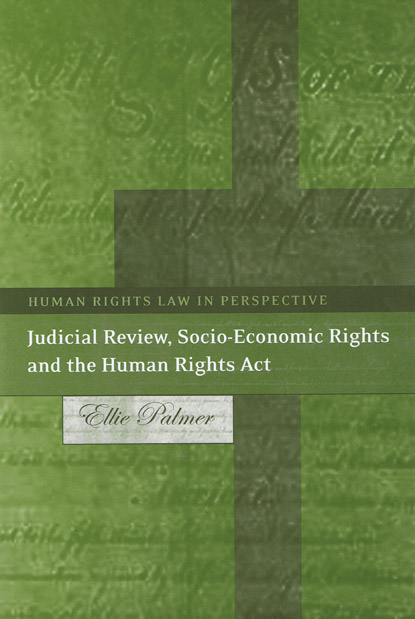
In the UK during the past decade individuals and groups have increasingly tested the extent to which principles of English administrative law can be used to gain entitlements to health and welfare services and priority for the needs of vulnerable and disadvantaged groups.
One of the primary purposes of this book is to demonstrate the extent to which established boundaries of judicial intervention in socio-economic disputes have been altered by the extension of judicial powers, particularly through section 3 HRA, and through the development of a jurisprudence of positive obligations in the ECHR. Although the substantive focus of the book is on developments in English law, it has theoretical human rights, international and comparative constitutional dimensions.
Thus, issues of justifiability in English administrative law have been explored against a background of two factors: on the one hand, a growing acceptance of the need for balance in the protection afforded to civil and political and socio-economic rights in modern constitutional arrangements, and, on the other hand, controversy as to whether courts could make a more effective contribution to the protection of socio-economic rights with the assistance of appropriately tailored constitutional provisions.